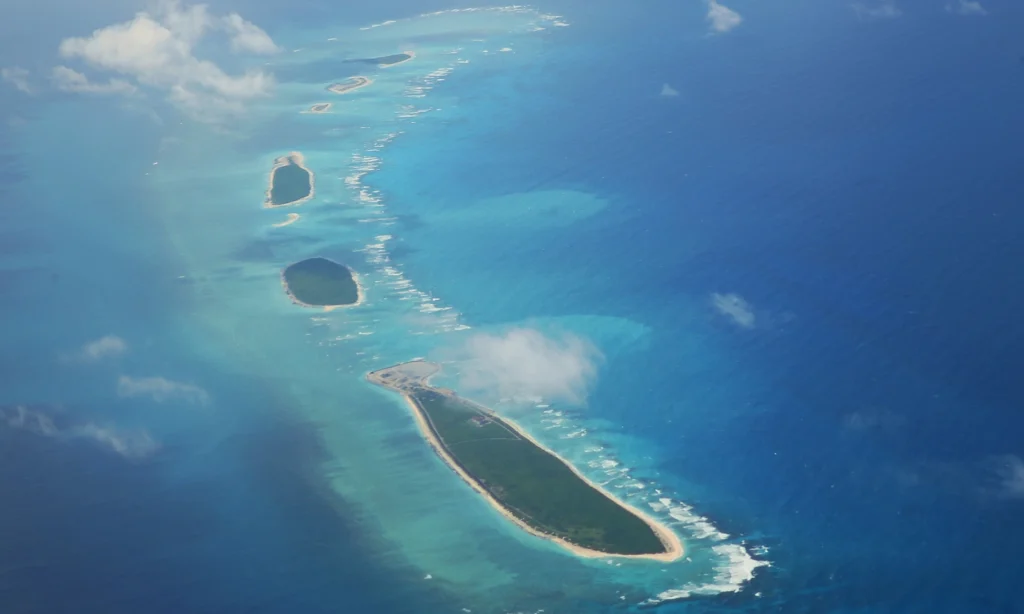The South China Sea: Emerging Geopolitical Flashpoint with Global Implications
The South China Sea, a vital maritime region, has become a focal point of intense geopolitical tension, drawing significant global attention. This bustling waterway, through which over 20% of global commerce flows, is not only rich in natural resources such as oil, natural gas, and fish but also holds immense strategic importance for international trade and military operations.
Regional Disputes and Territorial Claims
The South China Sea is at the center of territorial disputes involving several nations, namely China, the Philippines, Vietnam, Malaysia, and Brunei. China’s expansive territorial claims have been a significant source of friction. In recent years, China has bolstered its presence by constructing artificial islands and enhancing its military infrastructure within the disputed waters. These actions have raised concerns about the infringement of sovereign rights of neighboring countries and have posed significant challenges to established international maritime laws and norms.
Beijing professes a commitment to keeping these crucial sea lanes open, crucial for its export-driven economy. However, its aggressive expansion and infrastructure projects in the region signal an unwavering intent to assert dominance over this strategic waterway. This duality in China’s approach has drawn international scrutiny and concern.
The Role of the United States
The complexities of the South China Sea situation are further exacerbated by the involvement of the United States. The U.S. has been a vocal advocate for freedom of navigation and adherence to a rules-based international order, positioning itself in direct opposition to Beijing’s assertive claims. This superpower rivalry has expanded the scope of the conflict from regional disputes to broader global geopolitical dynamics, affecting security and trade across the Asia-Pacific region and beyond.
Internationally, the South China Sea is recognized as a critical military and commercial gateway. For China, this region offers a platform to enhance its strategic military capabilities. As the country seeks to project its naval power far beyond its traditional coastal boundaries, control over the South China Sea is pivotal. This ambition aligns with China’s broader objectives, including the controversial agenda of Taiwan’s reunification and the establishment of regional dominance.
Key Challenges and Economic Implications
China’s efforts in the South China Sea are part of a larger strategy to counter perceived encirclements by U.S.-led alliances. This strategy involves asserting control over the ‘first island chain,’ an area stretching from Japan through Taiwan to the Philippines. The ramped-up military activities and ongoing disputes underscore the delicate balance of power in the region and prompt urgent questions about the future of international maritime governance.
Despite the geopolitical tensions, the South China Sea remains a crucial maritime channel, reinforcing its role as an essential focus for global peace and stability. This region serves as a reflection of the complexities of modern geopolitical struggles and provides a critical gauge for changing patterns of global power and influence. Understanding the dynamics of the South China Sea is imperative for international observers and policymakers concerned with ensuring a stable and rules-based international order.
For more information about territorial claims in the South China Sea and how they affect global trade and security, explore more at United Nations Convention on the Law of the Sea (UNCLOS).
Conclusion
The South China Sea is a critical flashpoint that demands the attention of global policymakers and international observers. Its strategic and economic importance cannot be overstated, given its role as both a vital commercial gateway and a potential theater for geopolitical conflict. As the world grapples with the challenges posed by China’s ambitions and the U.S. opposition, the region will continue to be a barometer for future global stability and international maritime governance.
